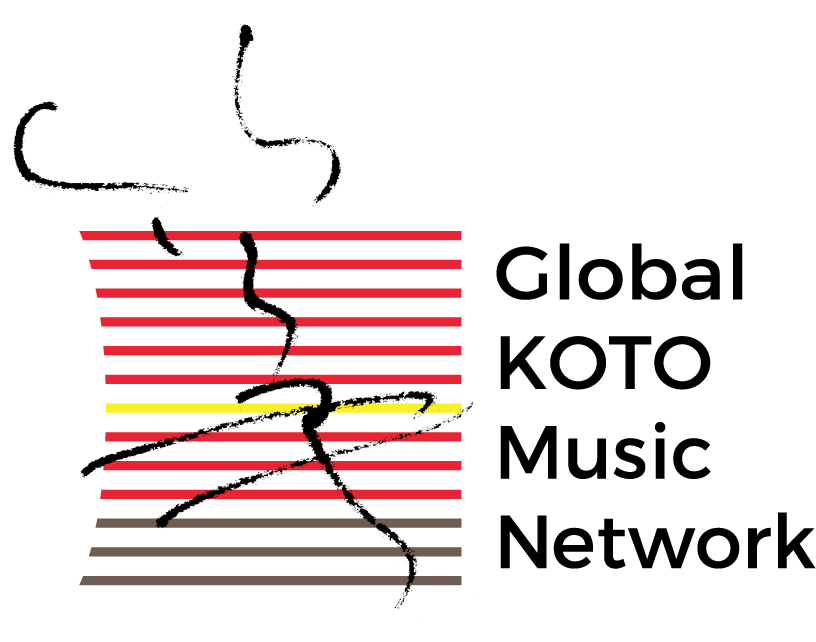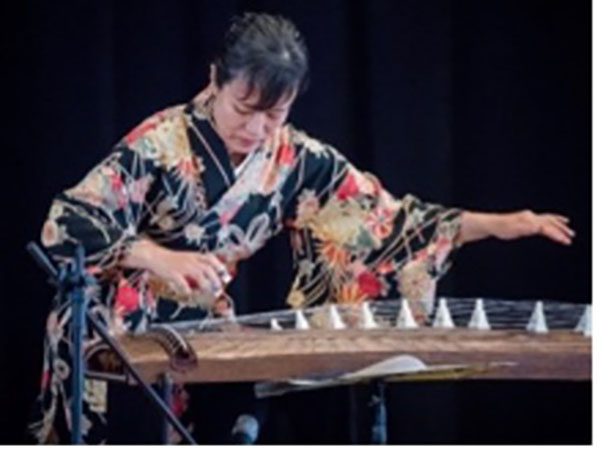
Mitsuki Dazai
Oregon, USA
Mitsuki Dazai is a graduate of Tokyo’s prestigious Kunitachi College of Music, studied koto with the world-renowned virtuoso Kazue Sawai, and received her certificate in koto instruction at Sawai Koto Institute. Dazai moved to Oregon in 2002, serving as a guest lecturer at universities in Oregon, as an artistic director of new koto ensemble group, Oregon Koto-Kai (Japanese Koto Society of Oregon) and touring throughout the US, Europe, South America and Japan.
In 2010, Dazai was featured on Oregon Art Beat, and released two CDs —Autumn, Music for solo koto (2007), and Far Away…Romances for Koto (2010) in collaboration with Grammy nominated composer Michael Hoppe. Her artistry is also featured on the album Shanti Samsara; World Music for Environmental Consciousness, produced by Grammy Winning Composer, Ricky Kej. In 2016, she was invited to 21C Music Festival in Toronto, Canada and played with Continuum Contemporary Music.
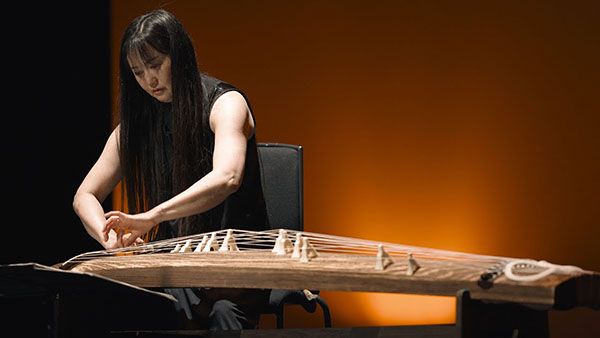
Makiko Goto (1963-2021)
Makiko Goto, born in Tokyo, Japan 1963, started playing koto with her mother at the age of nine. Since she was twelve years old she studied under Kazue Sawai and Tadao Sawai at the Sawai Koto School where she received the master degree “Shihan”.
In 1986, she moved to Hawaii (USA), where she was an instructor at the Ethnic Music Department of the University of Hawaii and established a branch of the Sawai Koto School. Since 1992, she is living in the Netherlands.
Makiko Goto is performing both traditional and contemporary music on koto, 17-string bass koto and 21-string koto. She is frequently invited to join in different ensembles and groups (duo, trio, electronic music ensemble, theatre, dance, etc) world-wide.
Her performances were recorded for international radio- and television programs and she appears on several CD’s with contemporary and traditional pieces for koto solo and/or chamber music with other instruments and voice.
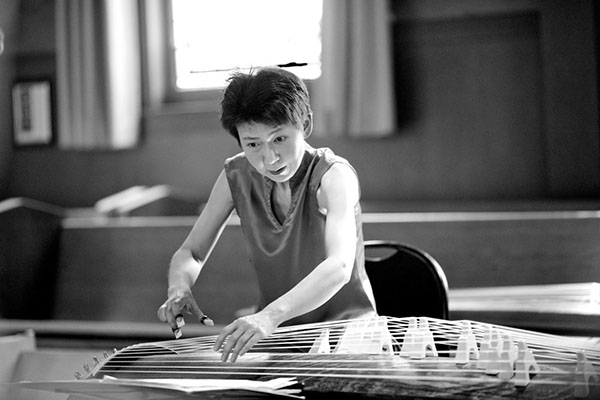
Shoko Hikage
Sacramento, USA
Hikage is grateful to have had wonderful teachers, including Chizuga Kimura, Iemoto Seiga Adachi, and Tadao and Kazue Sawai. Hikage graduated from Takasaki College in Japan with a major in koto music and received her master’s certificate from the Sawai Koto Institute. In 1992 she moved to Honolulu, where she taught koto at the Sawai Koto Institute’s Hawaiian branch and at the University of Hawaii. Hikage moved to San Francisco in 1997 and has continued her career as acclaimed koto performer and teacher. Hikage premiered Hyo-shin Na’s “Crazy Horse” for Korean Traditional Orchestra and Koto Solo with the National Orchestra of Traditional Instruments in Seoul, Korea in November, 2011. In 2017, Hikage organized historic concerts “Hengenjizai World of Koto Music” featuring two koto virtuosos, Soju Nosaka and Kazue Sawai, with Hogaku Journal. Concert was supported by Arts Council Tokyo, and performed at Herbst Theater in San Francisco.
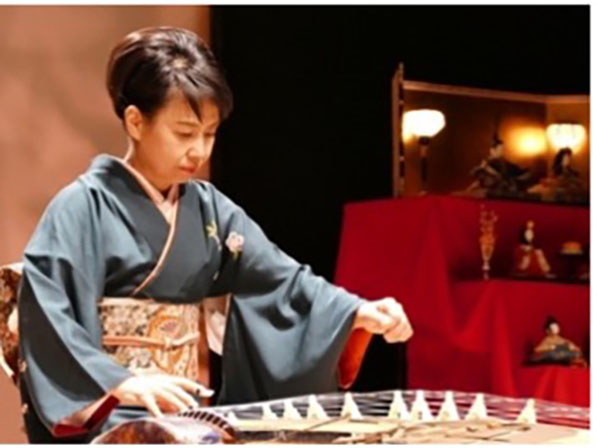
Masayo Ishigure
New York, USA
Masayo Ishigure began playing the koto and jiuta shamisen at the age of five in Gifu, Japan and has created an extensive multi-faceted career that continues to stretch the limits of the koto while maintaining a strong grasp of the tradition. After initial studies with Tadao and Kazue Sawai, Masayo became a special research student in 1986 at the Sawai Koto Academy of Music -The academy incorporates many influences from classical to jazz and aims to change the perception of the koto from solely as a traditional Japanese instrument to an instrument of universal expressiveness.
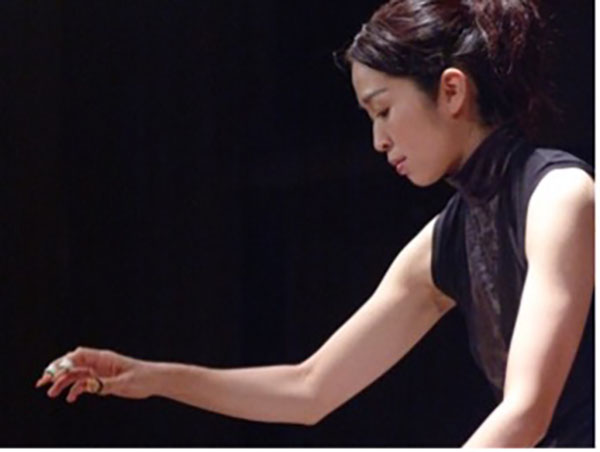
Naoko Kikuchi
Frankfurt, Germany
KIKUCHI Naoko, koto player, born in Sendai, Japan. As a child, Naoko Studied koto with her grandmother and mother. She took lessons from SAWAI Tadao and SAWAI Kazue.
KIKUCHI received honor prizes from several contest subsequently. In 2007, KIKUCHI received a year-long fellowship from the Japanese Government`s ‘Overseas Study Programme for Artists’ to work in Frankfurt, Germany, where she currently is a member of IEMA (International Ensemble Modern Academy) .
Her repertoire are not only classic and contemporary koto music, she is a versatile artist who participates in a variety of projects, such as in ‘Move the international Berlin’ a project of the Berlin Philharmonic, or even at the new edition of ‘Barcelona’ by Freddie MERCURY & Montserrat CABALLE, in the Gene COLEMAN composed music for silent films to ‘Page of Madness’ or the premiere of a dance opera at the Deutsche Oper am Rhein music by Adriana HÖLSZKY, it is just a small part.
KIKUCHI is vice president of Seigen koto school in Akita, Japan. also a member of Asian Art Ensemble.
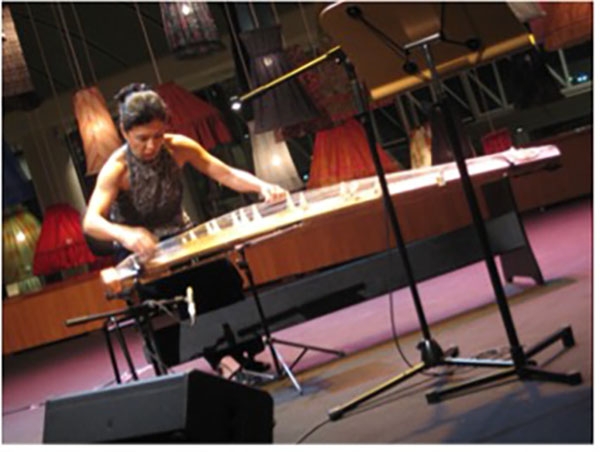
Saeko Kitai
Singapore
KITAI Saeko is a certified koto master of Sawai Koto School in Tokyo. Born in Osaka, she began studying koto at the age of ten. Her repertoire varies from classic to contemporary koto music on 13-string koto, 17-string bass koto and 3-string sangen (shamisen). She is now appointed as a Japanese language instructor and organising a koto ensemble “KotoKottoN” in the Centre for Language Studies at National University of Singapore.
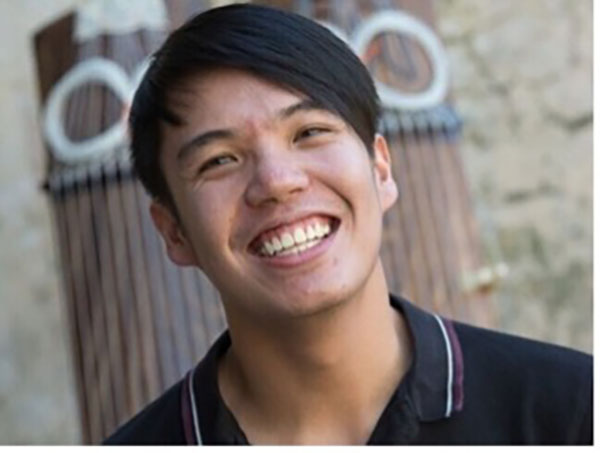
Brandon Lee
Melbourne, Australia
Brandon Lee is a Japanese koto (zither) performer based in Melbourne, Australia. Originally from Malaysia, he started the koto while attending university in Melbourne. He eventually moved to Japan and was a live-in apprentice for koto virtuoso Kazue Sawai in Tokyo. In 2011, he officially obtained his teaching and performance license from the Sawai Koto School. In 2014, he graduated with a Masters of Music from Monash University.
Since moving back to Melbourne, Brandon has actively performed all around Australia, including Melbourne, Sydney, and Broome. He has performed at events and festivals such as, NGV’s Cool Japan, Broome’s Shinju Matsuri, and more. He has also performed internationally in Japan and America.
Brandon performs both classical and contemporary for the koto but he is also interested in cross cultural collaboration in music and has worked with musicians like Anne Norman, Peter Knight, Andrea Keeble, and Sandy Evans.

Darin Miyashiro
Hawaii, USA
Born and raised in Hawai‘i, Darin graduated from Waiakea High School and attended the University of Redlands earning BA degrees in Music and Asian Studies. During his junior year abroad at Waseda University he was introduced to koto master Kazue Sawai and began studying classic and contemporary koto music under her and other master instructors at the Sawai Koto Institute in Tokyo.
After earning his instructor certificate, Darin returned to Hawai‘i and began serving as instructor for the Sawai Koto Kai Hawai‘i. He also serves as instructor for the So-shin Kai in Hilo. He has studied gagaku with the Hawai‘i Gagaku Society led by Rev. Masatoshi Shamoto and currently studies Ryukyu soukyoku with Okinawan koto master Hideaki Miyazato. In 2015 he established the Hawai‘i Koto Academy and continues to study under Kazue Sawai, Hikaru Sawai, and other master instructors at the Sawai Koto Institute in Tokyo.
Darin currently teaches at the University of Hawaii at Manoa Music Department.
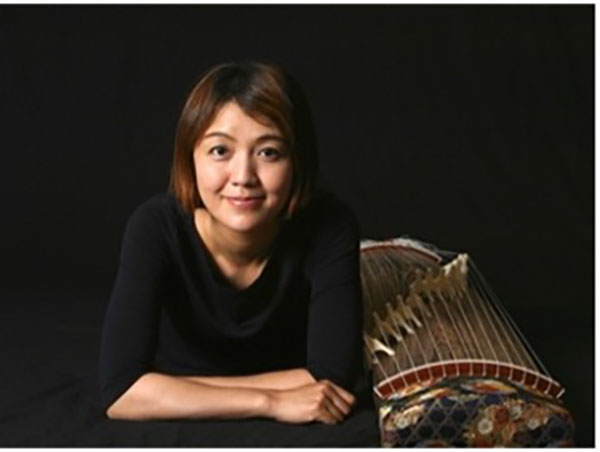
Ryuko Mizutani (1964-2008)
Ryuko Mizutani graduated from the NHK (Japanese National Broadcasting Company) School for Performers of Traditional Japanese Instruments. Since 1987 she has studied both classical and modern koto music under the world renowned koto masters Tadao and Kazue Sawai.
Further she has been interested in Improvisational and Experimental music. She has worked in collaboration with musicians and artists from other genres, touring in Paris and London. As a member of the Kazue Sawai Koto Ensemble, she toured Berlin, India, and Warsaw, and participated in the New York “Bang on a Can Festival”. In 1999, she received a fellowship from the Japanese Government Overseas Study program for Artists, which supported her study with Anthony Braxton and Alvin Lucier at Wesleyan University in Connecticut. Ryuko explores new musical possibilities for the koto by collaborating with western musicians and artists. She continues to commission new works for the koto by composers from around the world.
In 2004, she performed a koto concerto by a Japanese composer. Her performance of this concerto with the Penfield Symphony Orchestra was the U.S premier of the work.

Miyama McQueen-Tokita
Tokyo, Japan
Miyama is a koto and bass koto player and improviser. Constantly in search for her own style, she fuses ancient traditions with new ideas that are relevant to the music and people of the present day. She performs contemporary works, improvisation and original music, and as her free expressive style gained reputation, she began performing with artists visiting Japan from all around the globe. She has been invited to perform in festivals such as the Powell Street Festival in Canada, Tokyo Jazz Festival, Melbourne International Arts Festival and Mapping Melbourne. Ensembles she has performed with include the Vancouver Intercultural Orchestra, Australian Art Orchestra and Japan Philharmonic Orchestra. In recent years she has been putting energy into collaborating with composers from various countries, to create music for the koto in styles that have never before been explored. She took part in IMPULS Academy & Festival in Austria as a bass koto performer, where she performed improvisation, and premiered many new works written for bass koto.
Miyama has been taught by Satsuki Odamura and Kazue Sawai. She has a Masters in music from Tokyo University of the Arts, and is a 2018 grantee for the Asian Cultural Council New York Fellowship.
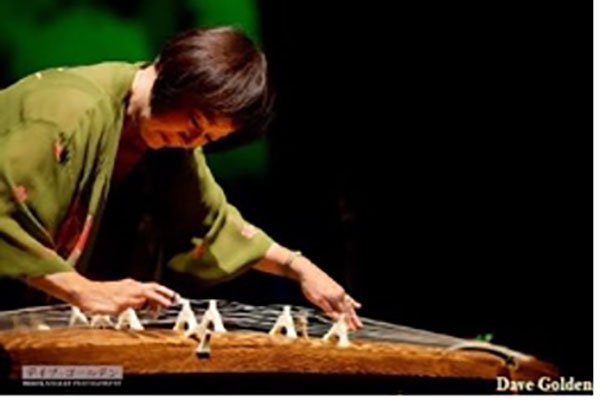
Shirley Kazuyo Muramoto
Oakland, USA
Shirley Kazuyo Muramoto was born and raised in the San Francisco Bay Area, a fourth generation American of Japanese descent. In 1976, Shirley received her “Shihan” degree (instructor’s license) with “Yushusho” (highest) honors from the Chikushi School in Fukuoka, Japan, and her “Dai Shihan” Master’s degree from the same school in 2000 for her mastery and dedication to the koto.
Shirley’s musical influences include koto masters Chikushi Katsuko, Kudo Kazue, Sawai Kazue, June Kuramoto and Kimio Eto.
She teaches students privately and taught classes in koto music at public schools and at universities. She also composes her own koto pieces and is the leader of the world jazz fusion group, the Murasaki Ensemble.
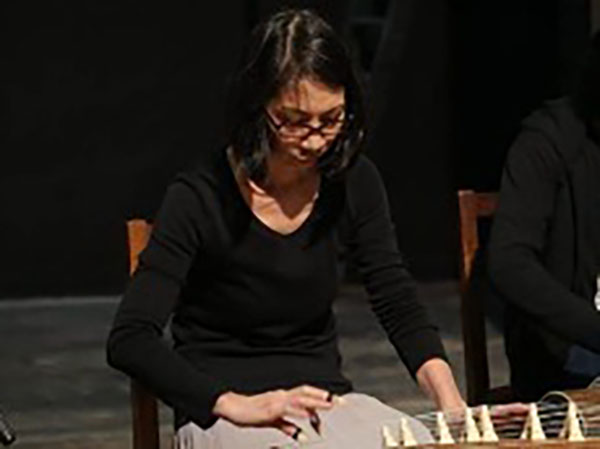
Hiroko Nagai
Manila, Philippines
Hiroko Nagai holds a PhD in anthropology. Based in the Philippines, she has worked with professional musicians, theatre artists, film makers and dancers. Trained in western classical music, jazz, rock and influenced by the contemporary opera and theater movements in Japan, she now uses koto and computer for her composition and improvisation. Her film scores received several awards including the Best Achievement in Sound and Aural Orchestration from Young Critic Circle, Philippines in 2017, the Best Music at ToFarm Film Festival in 2018, and the Outstanding Musical Score from the Filipino Academy of Movie Arts and Sciences in 2019. She teaches the koto at College of Music, the University of the Philippines, and serves as the musical director of the TUGMA Koto Ensemble.
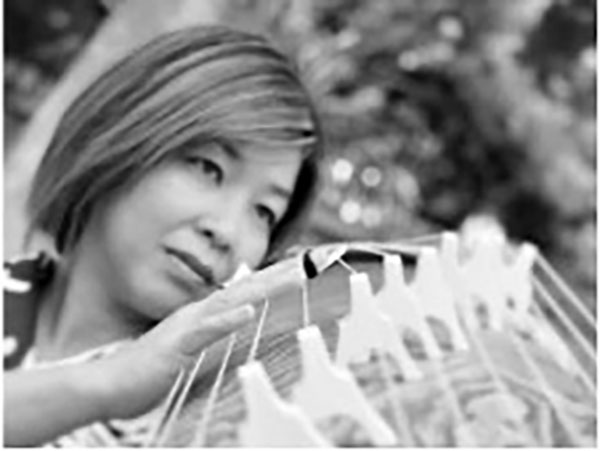
Takako Nishibori
Brisbane, Australia
Takako was born in Otsu, Japan. She began studying the Koto under Grand Master Fujino from Ikuta Ryu Miyagi school at six years old.
In 2000, Takako got her teaching license from the head of Miyagi school of Tokyo, coming in the top ten from all of Japan.
Takako gained her Masters of Education Studies at the University of Newcastle in 2005. As a language teacher and performer, she aims to introduce Japanese music to Australian school students by her “learning language through music” program.
After moving to Brisbane, Takako has become a regular performer as both a solo and in various ensembles. Takako has begun to explore new boundaries with the Koto, as she creates a new style fusing Koto with other instruments. Takako will always remain true to the essence of traditional Koto music. “It has to be Koto.” Her challenge has just begun.
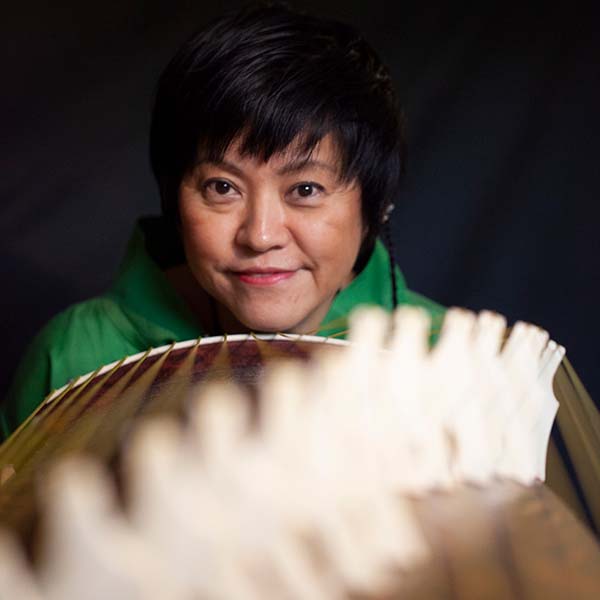
Satsuki Odamura
Sydney, Australia
Satsuki Odamura is a master of the Koto and Shamisen. She has pioneered awareness of these ancient Japanese instruments through her performances in Australia, and through teaching her students around the country. She is the Director of the Koto Music Institute of Australia.Satsuki began learning the Koto when she was ten. She joined the Sawai Koto School of Music in Tokyo when she was 18 and underwent the discipline of being a live-in student with her teachers Tadao and Kazue Sawai who are both towering figures in the history of Koto music. Her experience with Tadao and Kazue Sawai has deeply influenced her philosophy of music and her approach to performing and collaborating with other artists from a wide range of musical genres, including jazz, Western classical, Western modern and Aboriginal music. She believes that artists with no previous knowledge of the koto are able to create exciting new directions and dimensions for the instrument. Satsuki has inspired a number of Australian composers to write for her instrument, including Ross Edwards (Koto Dreaming), Peter Sculthorpe (Little Requiem) and many others.
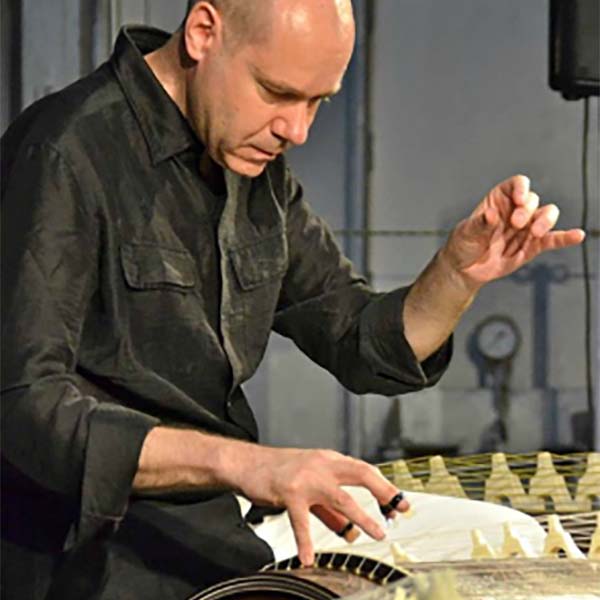
Curtis Patterson
Japan
Koto performer, composer, and teacher based in Japan. Studied with modern koto great Sawai Tadao and holds a master’s license from the Sawai Koto Institute. Became the first non-Japanese national to graduate from the NHK master’s program for young performers of traditional Japanese music in 1995. A member of the Sawai Tadao Koto Ensemble and Soemon, a koto performing group. Has played with artists including the singer/songwriter Ogura Kei. Since 2007, has worked with shakuhachi player Bruce Huebner, performing original compositions and arrangements across Japan. Released his solo album Oto no wa (Circles) in 2002 and partnered with Huebner on the 2007 Going Home and the 2008 Tracings.
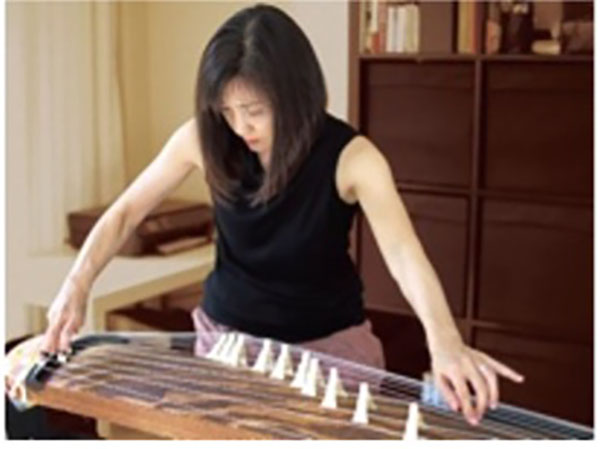
Noriko Tsuboi
Bangkok, Thailand
Noriko Tsuboi began studying koto at age eight, concentrating on traditional Japanese music. Obtained a Lecturer’s Certificate by Sawai Koto Institute in 1986, she entered the institute as a Special Research Student. She also completed the NHK Traditional Music Program. In 1992, Noriko was invited to teach at the University of California, San Diego as a koto instructor, where she also directed a student koto ensemble and held concerts in the California area.
Noriko has resided in Bangkok since 2001. In 2005, she invited koto and shakuhachi players from Japan and USA to have concerts in Bangkok and Chiang Mai, which was organized by the Japan Foundation, Bangkok. She also worked on organizing concerts of “Sawai Koto Orchestra Asia Tour”; supported by the Agency for Cultural Affairs of Japan, and performed in Bangkok, Kuala Lumpur, and New Delhi in 2007. She also had performed in Japan, Switzerland, Australia, Cambodia, Myanmar, and many other countries. Currently, she teaches koto in Bangkok, and continues to pursue intriguing musical possibilities by collaborating with various fields of musicians and artists.
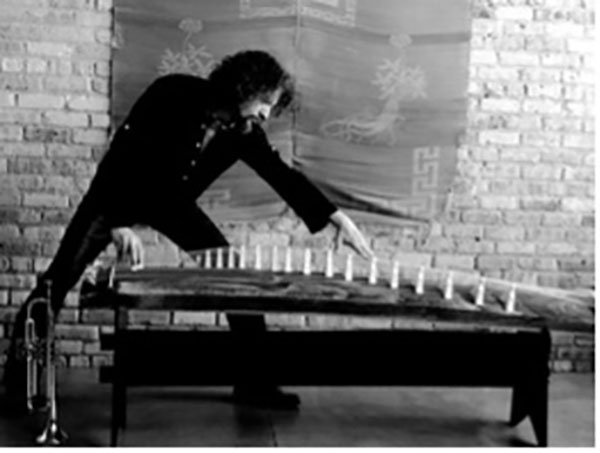
Jeff Wichmann
Chicago, USA
Jeff Wichmann is a licensed Japanese koto performer/teacher/composer and an accomplished trumpeter. He plays both the traditional 13-string koto and the 17-string bass koto. He’s been performing contemporary and traditional music on the koto for 20+ years in local and international koto ensembles. He’s collaborated with international instrumentalists, composers, playwrights, dancers, junk-yard sculpture artists, rock bands and poets.
He combines his two instruments, creating “koto brass rock” featured in his first solo album called “Aあhhhhh!!!!!“
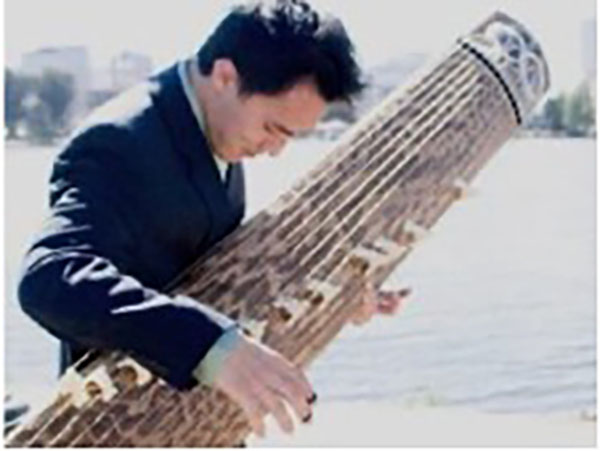
Brian Mitsuhiro Wong
Oakland, USA
Brian Mitsuhiro Wong, San Francisco Bay Area native has been playing since the age of 4, taught by his mother, Shirley Kazuyo Muramoto, also a Koto teacher and talented musician with the Murasaki Ensemble, continuing a brilliant legacy of koto performance spanning three generations, with roots in the internment camps of World War II.
He was inspired by a dynamic and exciting concert performance by Kazue Sawai, the leading performer of modern Koto music when he was 16. He accepted her invitation to continued his Koto studies under her tutelage, becoming an “uchi deshi” or live-in student at the Sawai Soukyokuin Koto Conservatory in Tokyo, Japan.
At age 21, Wong captured Japan’s “Grand Prix” award for achieving the highest scores on his teaching exams for the Japanese Koto from the Sawai Soukyokuin in Tokyo, Japan in July 2006, surpassing many Japanese native candidates.
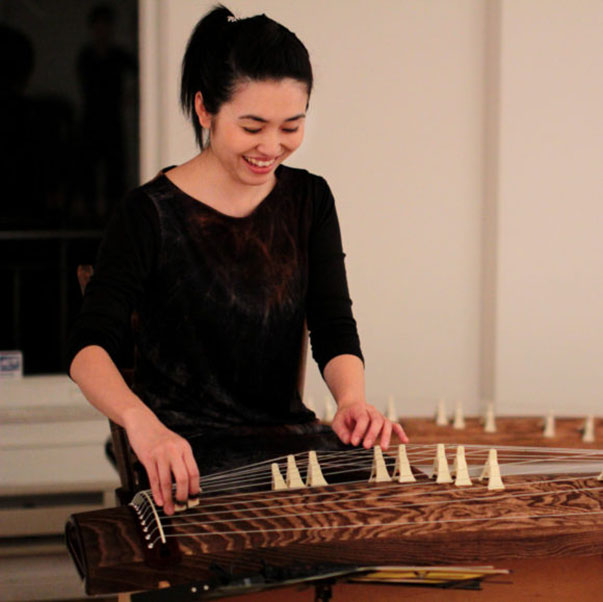
Yuki Yasuda
Los Angeles, USA
Japanese koto player Yuki Yasuda is based in Los Angeles, California. She was born in Japan and began playing the koto at age twelve. She later majored in koto music at the Takasaki Junior Arts College and also received rigorous koto instruction under the tutelage of Tadao Sawai and Kazue Sawai, the masters of great modern koto music. Yuki served as an uchi-deshi (live-in apprentice) at the Sawai Koto Institute for three years and is a graduate of the NHK (Japanese National Broadcasting Company), traditional Japanese School of Music. Yuki has an extensive concert performance track, highlighted with numerous, recordings, and TV appearances throughout Japan.
Since moving to New York in 2009, and to Los Angeles in 2014, Yuki performed extensively as a soloist, with ensemble groups and collaborated with musicians and composers of various genres. She performed at “The Lecture of The Japanese Traditional Music” at Harvard University, Cambridge, MA;, the “Heineken Jazz Fest,” Puerto Rico; “Taikoza (New York-based Japanese Drums group) Russia Tour,” two world-premiere koto concertos with the “Cape Ann Symphony Orchestra,” Gloucester, MA; “Quincy Symphony Orchestra,” Quincy, MA; “Yuki Yasuda Solo Koto Recital” New England Conservatory, Boston, MA; “Anime Boston” as a member of Ten, “BET Awards 2016,” Los Angeles, CA; “San Francisco International Arts Festival,” as a member of The Wooden Fish Ensemble, “Kenny Endo & Friends in Concert,” Anaheim, CA, many others. Moreover, she has toured in Argentina, Honduras, India, Malaysia, Thailand, Germany, Canada, Puerto Rico, and Russia.
